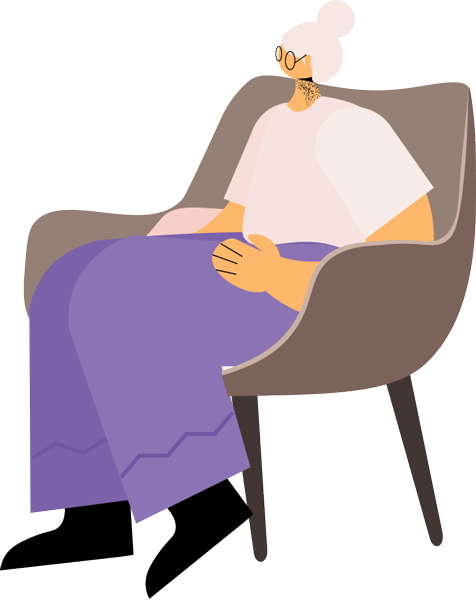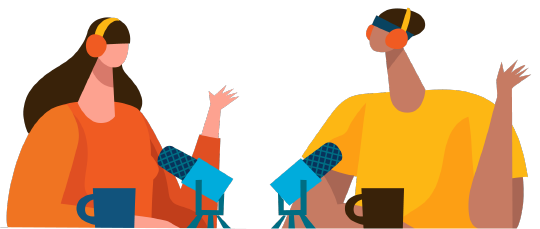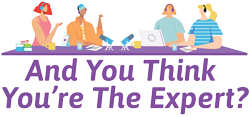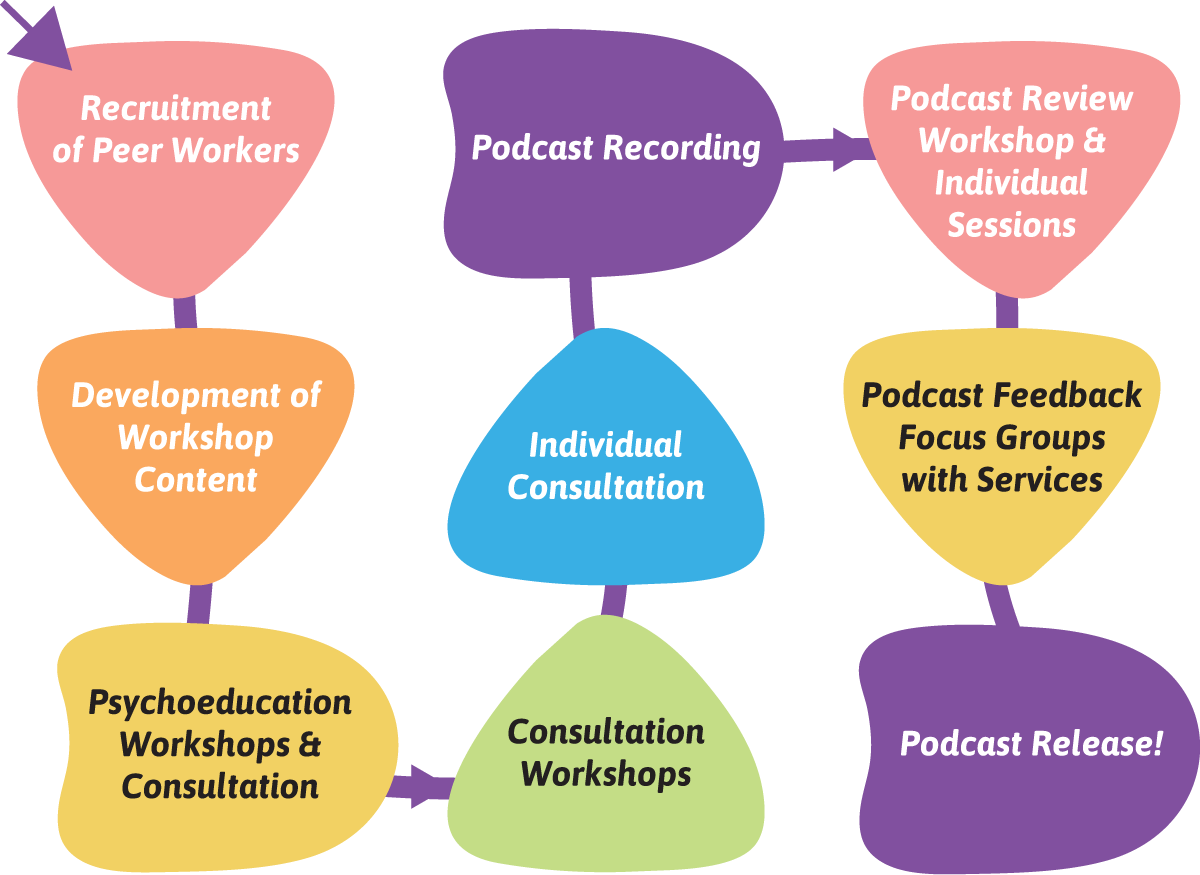About
And You Think You’re The Expert? was created through the Listen Up! Project at WWILD Sexual Violence Prevention Association Inc.
Why did we do the Listen Up! Project?
Women with intellectual disability experience violence more than other groups
- 90% of women with intellectual disability have experienced sexual abuse (Australian Law Reform Commission, 2010)
- Women with disability experience domestic and family violence (DFV) more than those without disability (ABS, 2021)
- Women with an intellectual disability are nearly three times more likely than women with a physical disability to experience violence (ABS, 2021)
- The drivers of violence against women with disability are sexism and ableism (Changing the Landscape, 2022).

Women with intellectual disability often don’t get support which works for them
- There are barriers for women with disability in accessing mainstream DFV services (Robinson et al., 2021).
- There are barriers for women with intellectual disability in reporting sexual violence (Fraser-Barbour et al., 2018).
Women with intellectual disability often don’t get asked about what would help
- Due to stereotypes and assumptions made about people with intellectual disability, many people with intellectual disability are left out of conversations about them and their needs.
We wanted to change that!


What did we aim to do?
- Run workshops with women with intellectual disability (ID), to share rights-based information about sexual violence, domestic and family violence and other forms of disability-related violence.
- Create resources for workers about how they could be more accessible when working alongside women with an ID, who have experienced violence.
- Challenge some of the assumptions made by workers and community members about women with ID. We wanted to showcase women with ID as leaders, contributors, teachers and experts in this field.


What did we do?
We held workshops in Brisbane, Logan, Gold Coast, Rockhampton and Caboolture about rights, violence and how to seek support. We also asked participants what makes accessible services for them after an experience of violence and what kind of resource we should make to share their ideas.
Here’s the process of how the podcast was created.
The above image’s process illustrates:
- Recruitment of Peer Workers
- Development of Workshop Content
- Psychoeducation Workshops & Consultation
- Podcast Recording
- Individual Consultations
- Consultation Workshops
- Podcast Review Workshops & Individual Sessions
- Podcast Feedback Focus Groups with Services
- Podcast Release!
What did we learn?
So much!
You can find out what makes accessible services for women with ID after an experience of violence by looking at our podcast, booklet and posters, available on this site. All of these resources were created from consultations with our experts.
For information on whether we met our aims and how effective the project was, have a look at our Evaluation Report.
Read our evaluation report
Please contact WWILD Sexual Violence Prevention Association Inc. if you’d like more information. See our Contact Page.


Thank you for your support
We had a lot of help from a lot of people. We would like to thank everyone that helped us with this project. Many services let us use their rooms. Many people gave us lots of good advice. Many people shared their cultural wisdom with us. We want to thank each and every one of them for their help. We couldn’t have done it without you!
We would also like to acknowledge the many disability advocates and survivors of violence that have done this work before us. We want to thank all of them for sharing their lived experience expertise! We could not have done this project without building on the knowledge of so many before us.
Please note: This project initially focused exclusively on women with intellectual disability but was later changed to include non-binary people as well. This page was created early in the project and therefore, only refers to women.
References
Australian Bureau of Statistics. (2021). Disability and Violence – in Focus: Crime and Justice Statistics, Australian Bureau of Statistics. Retrieved March 2, 2022 from https://www.abs.gov.au/statistics/people/crime-and-justice/focus-crime-and-justicestatistics/april-2021.
Australian Law Reform Commission (ALRC). (2010). Family Violence — A National Legal Response. ALRC Final Report, 114.
Fraser-Barbour, E.F., Crocker, R. and Walker, R. (2018). Barriers and facilitators in supporting people with intellectual disability to report sexual violence: perspectives of Australian disability and mainstream support providers. The Journal of Adult Protection, 20 (1).
OurWatch. (2022). Changing the landscape: A national resource to prevent violence against women and girls with disabilities.
Robinson S, Frawley P, Dyson S. (2021). Access and Accessibility in Domestic and Family Violence Services for Women with Disabilities: Widening the Lens. Violence Against Women. 27 (6-7)



Contact numbers for support in Australia
If this podcast has upset you in any way, please reach out to get some support.
The numbers in Australia are:
- 1800 Respect – 1800 737 732
The National Sexual Assault, Family & Domestic Violence Counselling Line for any Australian who has experienced, or is at risk of, family and domestic violence and/or sexual assault.
24 hours, 7 days a week. - Lifeline – 13 11 14
A national number which can help put you in contact with a crisis service in your state - Kids Helpline – 1800 55 1800
Telephone, email and web counselling for children and young people. - Relationship Australia – 1300 364 277
Support groups and counselling on relationships. - National Disability Abuse and Neglect Hotline – 1800 880 052
An Australia-wide telephone hotline for reporting abuse and neglect of people with disability
About this project
These resources were developed and published by WWILD SVP ASSOCIATION INC.© in collaboration with 33 women with intellectual disabilities. For more information, see www.wwild.org.au




Contact us
WWILD Sexual Violence Prevention Association Inc.
Phone: (07) 3262 9877
Fax: (07) 3262 9847
Email: info@wwild.org.au
Contact hours:
Monday to Friday | 9am – 5pm
Funding Acknowledgement
The And You Think You’re the Expert? resources were created as part of the Listen Up! Project, which was kindly funded by the Department of Social Services through the Community Led Projects to Prevent Violence Against Women and their Children.


Acknowledgement of Country
We would like to first and foremost acknowledge the traditional owners of the many unceded lands on which we gathered on for this project; the Turrbul and Jagera people of Meanjin (Brisbane), the Yugambeh people of the Gold Coast, the Gubbi Gubbi people of Caboolture, the Darumbal people of Rockhampton, and the Turrbal, Jagera and Yugambeh people of Logan. We would like to pay our respects to their Elders past, present and emerging. It always was and always will be Aboriginal land.

